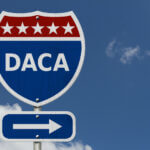Contents
In June, President Trump signed an executive order suspending four important visa categories – L-1 visa, H-1B visa, H-2B, and certain J-1 visas – for the remainder of 2020. If this action has affected you or your family or business, will a Las Vegas immigration attorney be able to help?
The June 22 executive order also sets the stage for substantial changes to the way employers sponsor international workers for employment in the U.S.
However, if you are currently in the U.S. with a J-1, H-1B, L-1, or H-2B visa, you will not be affected by the executive order if you don’t travel outside of the U.S. or – if you’re now outside of the U.S. – you have already acquired a visa.
Additionally, the June 22 executive order also extends – through the rest of the year – provisions of an April 22, 2020 executive order that halted for sixty days the issuing of any new immigrant visas to visa applicants currently outside of the U.S.
Exactly Who is Subject to the Entry Ban?
Nonimmigrants (and their spouses and minor children) in these visa classifications are subject to the entry ban:
- H-1B professionals in specialty occupations
- L-1 intracompany managers, executives, and workers with specialized knowledge
- H-2B non-agricultural temporary workers
- J-1 interns, trainees, teachers, au pairs, and summer work program participants
The executive order applies only to persons in these visa categories who were outside of the U.S. on or after June 24, 2020, who had not yet acquired a visa as of June 24, 2020, or who have no other authorization to enter the U.S. such as:
- a boarding foil
- a transportation letter
- an advance parole authorization
Who Is Unaffected by the Entry Ban?
The June 22 order does not affect persons who were chosen in the H-1B lottery and are in the U.S. with F-1 student visas, nor does it affect those who had post-graduation Optional Practical Training (OPT) and are now working in a “cap gap” status through October 1, 2020.
International employees with L-1 visa stamps who are not currently in the U.S. will still be permitted to travel to the U.S. through the end of 2020. The entry ban doesn’t apply to:
- Individuals who were lawfully present in the U.S. as of June 24, 2020. These individuals will still be able to retain and extend their current status, and if qualified, may also continue to seek lawful permanent residency.
- Individuals who had valid nonimmigrant visas as of June 24 will be allowed to enter the U.S. with their current visas. However, other restrictions on travel related to COVID-19 are still in effect.
- Nonimmigrants in visa categories other than J-1, L-1, H-1B, and H-2B may still seek visas and enter the U.S. if other restrictions do not affect them. Visa categories that are not affected include the E-1, E-2, E-3, TN, and O-1 categories.
- Individuals who seek to enter the U.S. to offer temporary services or labor that is vital to the food supply and its distribution in the U.S. are not affected by the entry ban.
Are There Other Exceptions?
The June 22 executive order exempts some workers who are entering the U.S. for food supply and medical services related to COVID-19.

The Departments of State (DOS), Labor (DOL), and Homeland Security (DHS) are establishing standards to approve exceptions for persons who are:
- essential for U.S. national security, diplomacy, and law enforcement
- providing healthcare to those hospitalized with COVID-19
- involved in medical research focusing on COVID-19
- facilitating economic recovery in the U.S.
Green card holders, the children and spouses of U.S. citizens, and persons who have applied for withholding of removal, refugee status, asylum, or protection under the Convention Against Torture have been exempted from the provisions of the June executive order.
What is Now Required of Federal Departments and Agencies?
The executive order also requires DOS, DOL, and DHS to consider new compliance and recruitment rules for employers, new H-1B eligibility qualifications, and enhancing the authority of port officials and consular officers.
The order requires government departments and agencies to take these and other specific actions:
- DOL, working with DHS, has been ordered to establish rules that will ensure that issuing EB-2, EB-3, and H-1B visas do not put U.S. workers at a disadvantage.
- DOL has been ordered to investigate H-1B employers who are reasonably believed to be in violation of Labor Condition Application regulations.
- DHS has been directed to work with DOS to make sure that no foreign national qualifies for any visa or for entry into the U.S. until that person has provided full biometric and biographic information.
- DHS has been ordered to ensure that no work permit is issued to any foreign national who is deportable, inadmissible, has a final order of removal, or who has been arrested for, charged with, or convicted of a criminal offense.
How Will the Executive Order Affect You and Your Family or Business?
DOS, DHS, and DOL are establishing procedures to implement the provisions of the June 22 executive order. As a result, nonimmigrants who are affected by the order may expect travel and visa processing delays.
The June 22 executive order introduces the most far-reaching restrictions on legal immigration in recent history. When these provisions go into effect, they will substantially restrict the capabilities of U.S.-based employers to address needs in the workforce.
Why Should You Seek an Immigration Attorney’s Help?
No one knows at this time if the entry ban announced on June 22 will extend beyond 2020. For now, if you and your family or employees are affected by the entry ban, you should seek legal guidance and advice from a Las Vegas immigration lawyer.
For several years now, immigration law – which was always cumbersome and confusing – has been thrown into chaos. New executive orders and new court rulings have been issued at a rapid pace. The COVID-19 pandemic has added even more complications.
If you’re confused by the chaos, you are not alone. If you have questions about the June 22 executive order, the COVID-19 restrictions, or any other aspect of immigration law, let a good immigration attorney provide the answers and advice you need.
And if you have applied for a green card or a visa, or if you are trying to bring employees or a family member to the United States, you should arrange at once to speak with an experienced Las Vegas immigration attorney.






